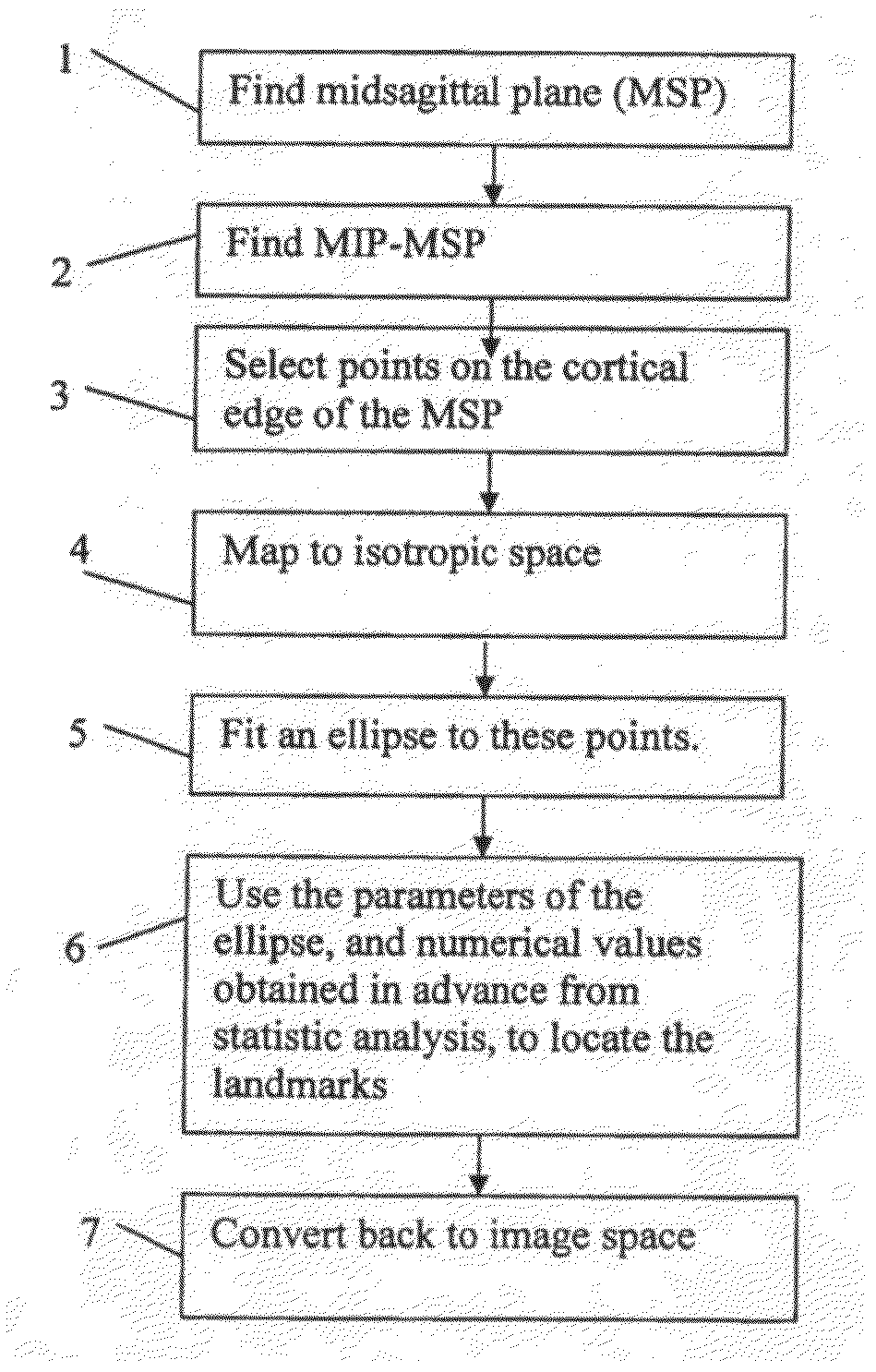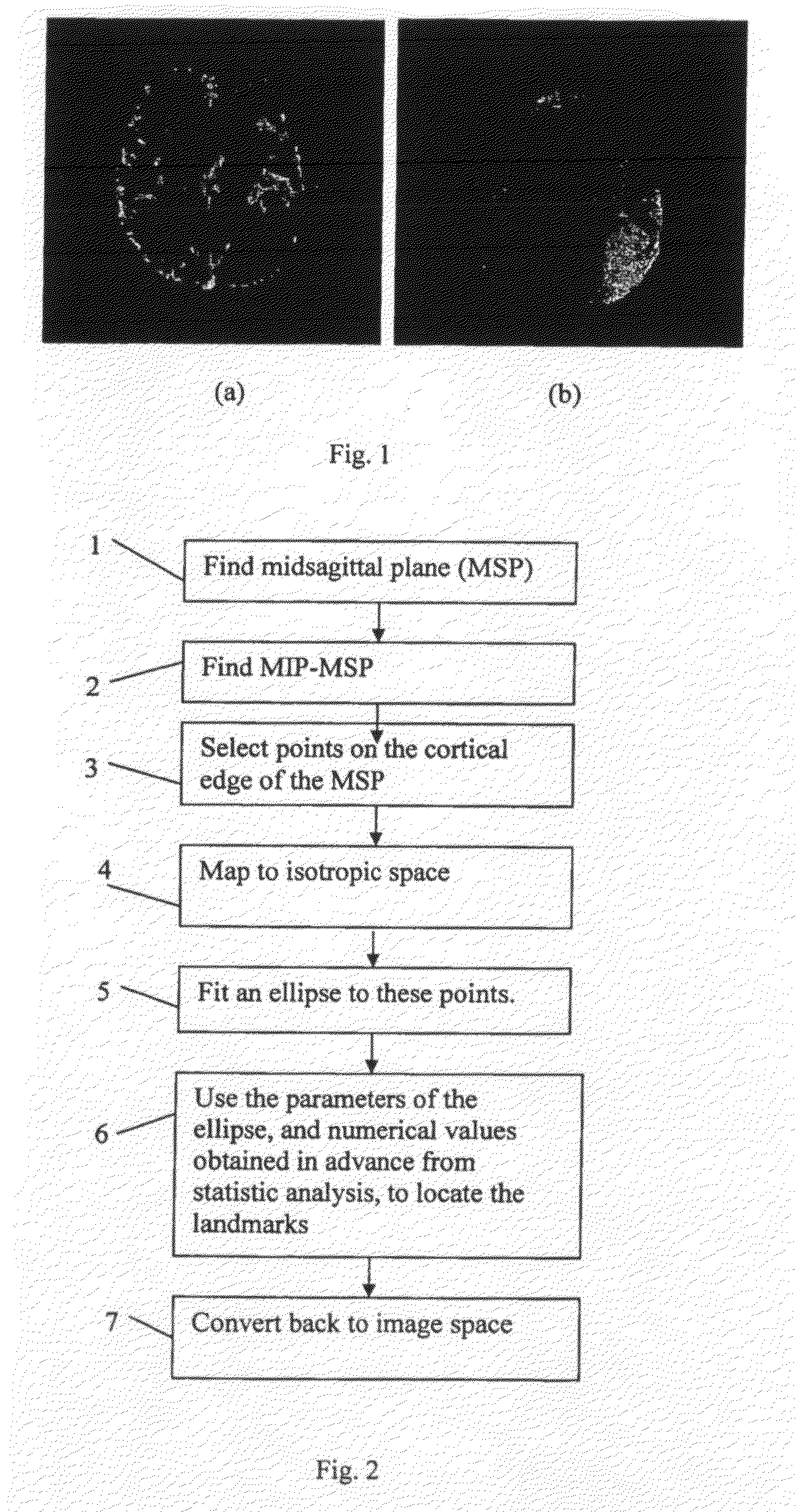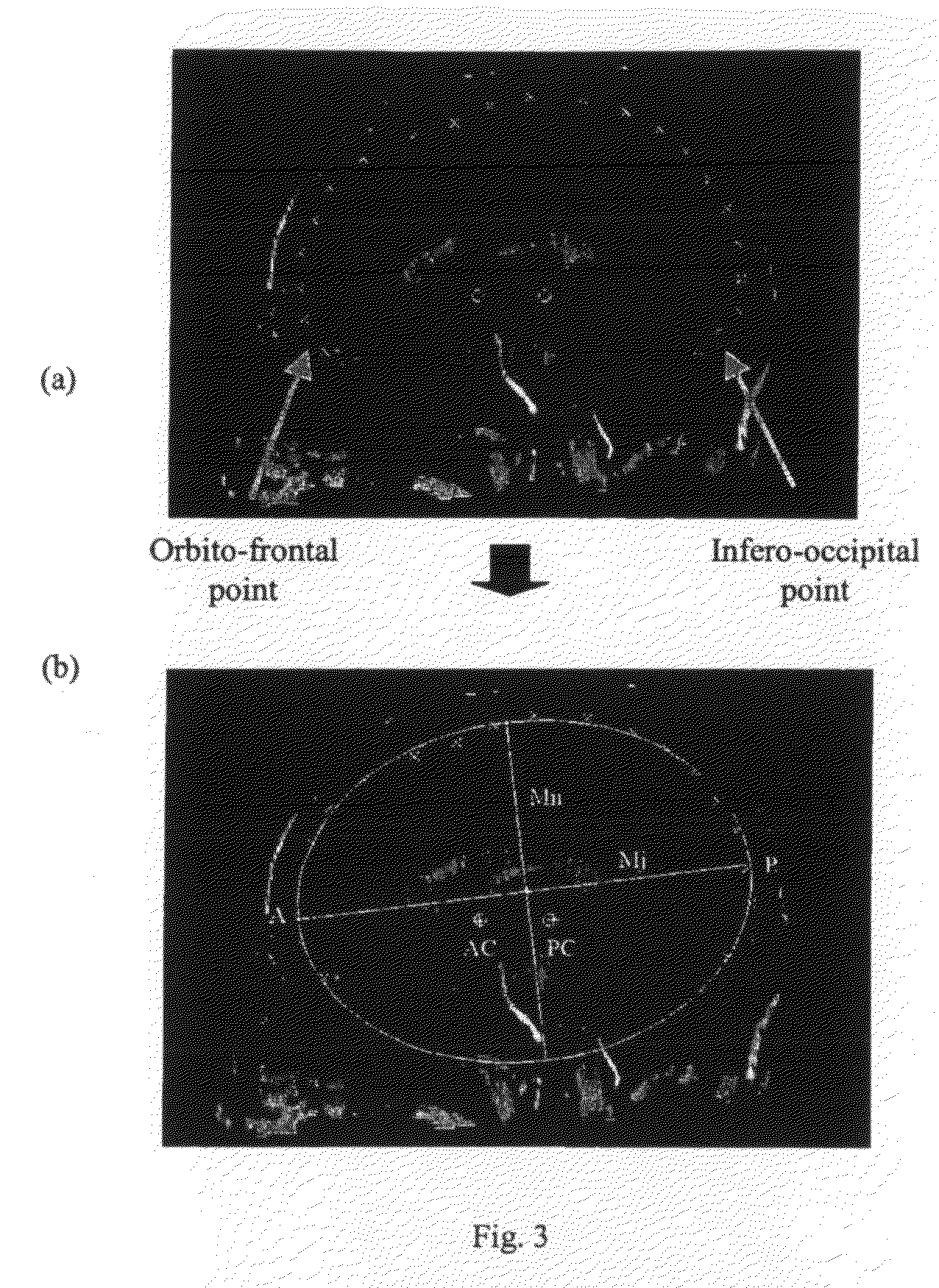Localization of brain landmarks such as the anterior and posterior commissures based on geometrical fitting
- Summary
- Abstract
- Description
- Claims
- Application Information
AI Technical Summary
Benefits of technology
Problems solved by technology
Method used
Image
Examples
Embodiment Construction
[0019]A method which is an embodiment of the invention will now be described with reference to FIGS. 2 and 3. Processing of neuroimage comprises of the following major steps shown in FIG. 2 (the volume is assumed to be in radiological convention).
1. Find the midsagittal plane (MSP) of the cerebral volume (e.g. by using the algorithm from [14]).
2. Set a slab of say ±2 mm about the MSP to construct a new slice using the maximum intensity projection (MIP) of the sagittal slices in this range. Let this slice be referred as MIP-MSP.
3. Select points on the cortical edge on the MIP-MSP between the orbito-frontal and infero-occipital point landmarks of the brain (FIG. 3a). A recommended number of points to choose should be 15 or more to ensure the robustness of the fit. These points should preferably be evenly-distributed and should cover the entire region in between the orbito-frontal cortex and occipital cortex of the brain, especially at points where the curvature is large.
4. The points ...
PUM
 Login to View More
Login to View More Abstract
Description
Claims
Application Information
 Login to View More
Login to View More - R&D
- Intellectual Property
- Life Sciences
- Materials
- Tech Scout
- Unparalleled Data Quality
- Higher Quality Content
- 60% Fewer Hallucinations
Browse by: Latest US Patents, China's latest patents, Technical Efficacy Thesaurus, Application Domain, Technology Topic, Popular Technical Reports.
© 2025 PatSnap. All rights reserved.Legal|Privacy policy|Modern Slavery Act Transparency Statement|Sitemap|About US| Contact US: help@patsnap.com



